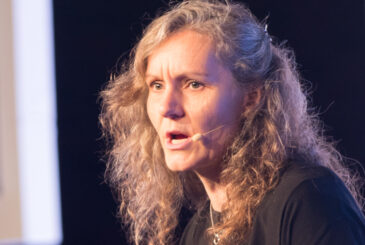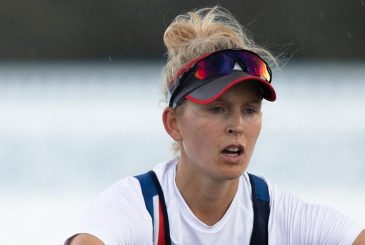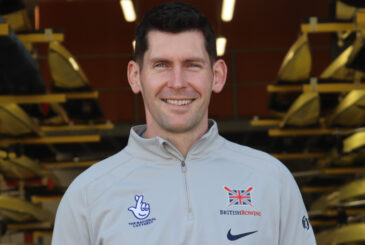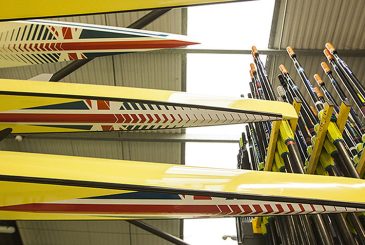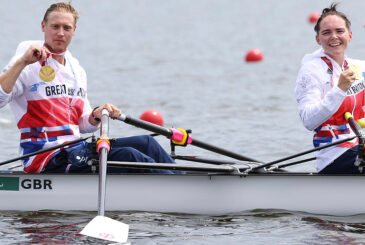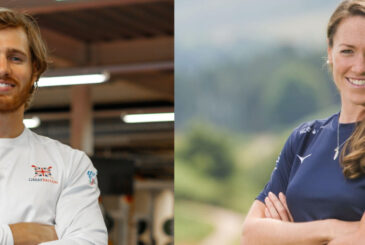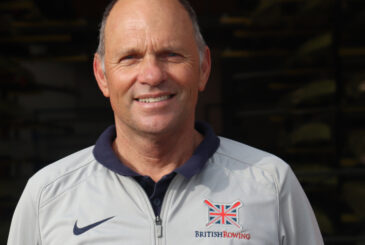GB rower Beccy Muzerie explores all the ingredients that have contributed to her GB rowing career
It is easy for me to tell you my rowing story like this: I was not a sporty child and only started rowing at university having never previously set foot in a gym.
By the end of my second year of rowing, I had won academic eights at Henley Women’s Regatta, a first for a Cardiff University crew. Shortly after that I joined the Welsh development squad whilst studying full time for my masters in social work. I then moved to Molesey where I worked full time and trained at the boat club morning and evening, getting invited on my first GB camp, coming third at non-Olympic trials, and representing my country for the first time at the World University Regatta. At the end of that season I was invited to join the GB Rowing Team.
All of this is true. I have worked incredibly hard to get to where I am, overcoming injury and setbacks; I’ve been tested to both my mental and physical limits; I’ve set, pursued, achieved and reset many goals along the way. But it is not the full story. I didn’t do it alone.
“There are many people who have worked just as hard and faced possibly even more challenges than I have, but have not ended up in the same position”
I am not here solely because of all the things that I have done and lessons that I have learnt. I have also been raised in a culture that maximises opportunity, I’ve been surrounded on the journey by some amazing people, and I’ve been in the right place at the right moment in history. And I think acknowledging that there is more to success than working hard is important, not least if to recognise that there are many people who have worked just as hard and faced possibly even more challenges than I have, but they have not ended up in the same position.
Let me give you some examples.
My first real taste of success – the first time I set myself a big goal and trained with that in mind day and night – was getting a medal at Henley Women’s Regatta (HWR). I absolutely loved being a member of Cardiff University Rowing Team and (I hope they won’t mind me saying) they don’t have a long history of winning big rowing events, which should never be the defining feature of a successful club.
A couple of years prior to my joining the Cardiff team there were a number of very driven athletes who had made it to the semis or finals at HWR and lost out. So the next year was the ‘last chance’ for some of those girls who I rowed with in the eight. They had lots of experience and knew the cost of losing, which gave us an even more determined focus to get it right. And together we did. I believe it was their past experiences, as well as a lot of hard work and some great coaching, that got us across that finish line first.
Moving to Molesey was strategic. I had grasped the opportunity to speak to a GB coach when they were conducting a training camp in Cardiff about which clubs would give me a greater opportunity to develop.
My move coincided with the 2015/16 season, for which the major event in everyone’s calendar was the Rio 2016 Olympics. A huge proportion of the women’s Olympic Rowing Team chose to retire after Rio, and those spots on the squad needed filling.
Yes, that year was the hardest of my life so far – trying to sustain full-time employment whilst working hard to perform at trials and take each opportunity I was given, but I was being given opportunities because the spots in the team for next season were opening up. I was in the right shape, in the right place, at the right time. And that September I was offered a trial period on the GB Rowing Team.
“I was struck listening to Kyra Edwards’ interview with Holly Hill, where she said that she didn’t even know if a black person was able to be successful at rowing”
I can talk about specific examples, but it would be remiss of me not to consider the bigger picture of the culture that I grew up in.
A white family, a child of working professionals, where trying new things was encouraged and going to university in the first place was not expected, but certainly considered the norm. Being at university gave me the opportunity to try rowing, and my family encouraged me to continue with it because it was something I loved.
Whilst I have gone through many seasons of doubt that I am good enough to be part of the GB Rowing Team, I have never considered this in the context of the colour of my skin. I was struck listening to Kyra Edwards’ interview with Holly Hill where she said that she didn’t even know if a black person was able to be successful at rowing. There are some barriers that I have been privileged not to have to overcome.
I could go on, but hopefully I have begun to make my point. It is always an interesting discussion, which many books have been written on – to what extent is sporting success talent, or is it just hard work?
These thoughts don’t necessarily address that topic specifically, but rather add what I consider to be an important additional factor. The opportunities we are given, be that through our race, culture, education, relationships, contacts, location, calendar year can also play a role in success. And some of these are things we can influence, some for ourselves, but many by our interactions and the opportunities we create for others.
I am so grateful for all the circumstances that have led me to where I am sitting today, and I am challenging myself to be better at creating opportunities for others to do the same.
Footnote: There are many things that have influenced my thoughts on this topic, but one particular book would be Outliers: the story of success by Malcolm Gladwell.
Photo: Nick Middleton



